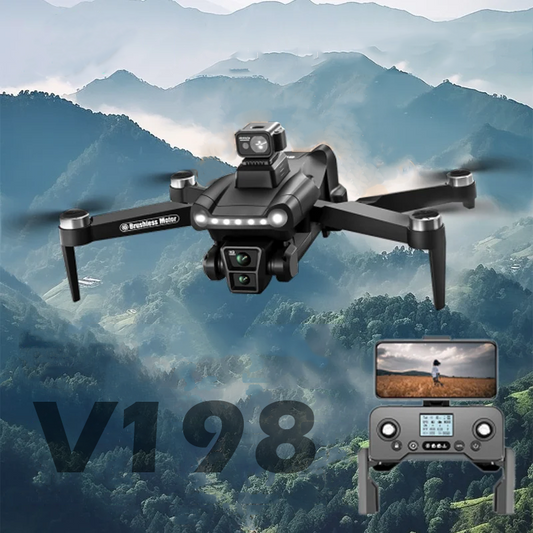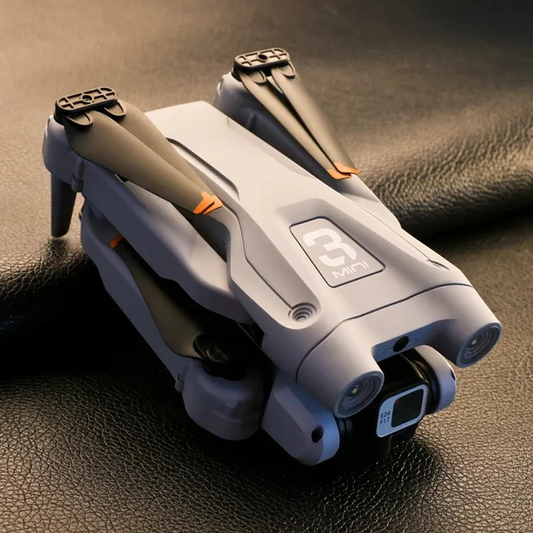The Role of Drones in Whale Behavior Studies

In the vast expanse of the world's oceans, where majestic whales roam freely, understanding their intricate behaviours has been a challenge for marine scientists for decades. However, with the advent of cutting-edge technology, particularly drones, researchers are now unlocking new frontiers in whale behaviour studies. This article delves into the pivotal role that drones play in revolutionising our understanding of these marine giants.
1.Understanding the Significance:
Whales, being enigmatic creatures of the deep, have always intrigued scientists and enthusiasts alike. Their migratory patterns, communication methods, and social structures are crucial aspects that researchers aim to comprehend. Traditional methods, such as boat-based observations, were limited in providing comprehensive insights due to factors like disturbance to the whales and the sheer vastness of the oceans.
2. A Game-Changing Technology
The utilisation of drones in whale behaviour studies has marked a paradigm shift in marine research. These unmanned aerial vehicles offer a non-intrusive and efficient means of observing and studying whales in their natural habitats. Let's explore the key ways in which drones have transformed the landscape of whale behaviour studies.
3.Aerial Perspectives:

Drones provide researchers with a bird's-eye view of whale activities. By soaring above the ocean, drones offer a unique perspective that was previously unattainable. This aerial viewpoint allows scientists to observe and document behaviours such as feeding habits, mating rituals, and group dynamics in a more comprehensive manner.
The ability to capture high-resolution images and videos aids researchers in cataloguing individual whales based on markings, scars, or other distinctive features. This, in turn, contributes to the creation of more accurate and detailed databases for tracking whale populations over time.
4.Non-Intrusive Observation:
One of the primary advantages of using drones in whale behaviour studies is their non-intrusive nature. Traditional research methods often required close proximity to whales, which could disturb their natural behaviours and lead to inaccurate observations. Drones, on the other hand, can maintain a safe distance while still capturing detailed information.
Reducing disturbance is particularly crucial when studying sensitive whale species. For example, the critically endangered North Atlantic right whale is known to alter its behaviour in response to vessel noise. Drones offer a solution by minimising human presence and, consequently, reducing the impact on these magnificent creatures.
5.Cost-Effective Research:

Historically, conducting extensive marine research involving boats, crew, and equipment could be financially burdensome. Drones have significantly lowered the cost of data collection in whale behaviour studies. With their ability to cover large areas efficiently, drones streamline the research process, making it more economical without compromising on the quality of data obtained.
6.Improved Safety for Researchers:

Working in the open ocean presents inherent risks to researchers. Drones mitigate these risks by eliminating the need for researchers to be in close proximity to whales or navigate treacherous waters. This enhanced safety not only protects researchers but also allows for prolonged and consistent data collection, ultimately contributing to a more comprehensive understanding of whale behaviours.
7.Monitoring Environmental Impact:

Whale behaviour studies extend beyond the animals themselves; they also provide valuable insights into the health of marine ecosystems. Drones equipped (All Drones Accessories) with advanced sensors can monitor environmental factors such as water temperature, salinity, and the presence of pollutants. This holistic approach helps researchers correlate whale behaviours with environmental changes, contributing to a more nuanced understanding of the interconnected marine ecosystem.
8.Challenges and Future Prospects:

While drones have revolutionised whale behaviour studies, there are still challenges to overcome. Limited flight time and adverse weather conditions can impact data collection. Additionally, regulations surrounding drone usage in marine environments must be navigated carefully to ensure minimal disturbance to wildlife.
Looking ahead, advancements in drone technology, such as increased battery life and enhanced sensors, hold the promise of overcoming current limitations. Collaborations between researchers, drone manufacturers, and regulatory bodies are essential to harness the full potential of this groundbreaking technology in advancing our understanding of whale behaviours.
In the dynamic world of marine research, drones have emerged as indispensable tools for unravelling the mysteries of whale behaviours. Their non-intrusive nature, cost-effectiveness, and ability to provide unique aerial perspectives have elevated the precision and depth of data collected by marine scientists. As technology continues to evolve, the collaboration between researchers and drone developers promises a future where our understanding of whales and marine ecosystems reaches unprecedented levels. The skies are not the limit; they are the gateway to unlocking the secrets of the deep blue.
Explore a variety of drones at our online drone store.
Happy Flying!









